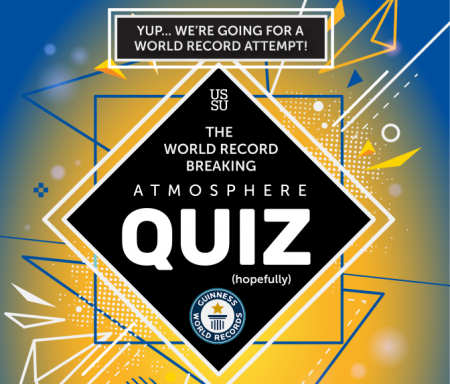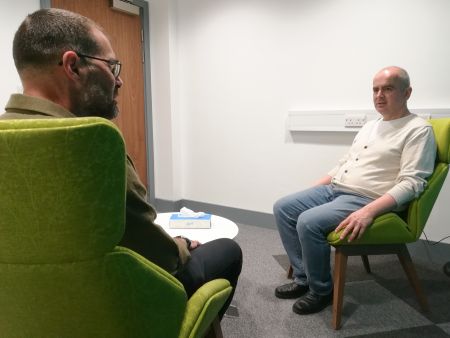
Surround sound technology to revolutionise home entertainment
Thursday 13 September 2018
A BBC collaboration with the University of Salford today showcases an exciting spatial audio experience that will revolutionise home entertainment.
They have been working on a way of using speakers in devices that people already have at home, such as mobile phones and laptops, to recreate the sense of immersion that you get in the cinema or at a live concert.
Revealed for the first time today at the British Science Festival, the immersive audio experience is like a surround sound system, but without the hassle of cables or expensive loudspeakers.
The technology emerges from the S3A: Future Spatial Audio project involving BBC Research & Development and the Universities of Surrey and Southampton and the University of Salford's Acoustic Engineering team .
Science fiction
Users can test out the technology by listening to a specially created science-fiction story —The Vostok-K Incident posted today on BBC Taster. The 13-minute drama that’s been created specifically to take advantage of extra connected devices. You can listen to the piece just like a normal audio drama, but the experience gets better as you connect more extra devices, unlocking surround sound effects as well as extra hidden content.
Dr Jon Francombe, at BBC R&D said: “I think it’simportant for audio research to focus on bringing great sound experiences to asmany people as possible, and the S3A project team have been developing newtechnology to achieve that.
“One way is to make use of devices in the home that are connected to the Internet and can reproduce sound. To take advantage of this,we needed to produce the audio in a flexible format, design rules for intelligent adaptive processing, and develop techniques for connecting and synchronising the devices. Consequently, this work has been a huge collaborate effort between sound designers, research scientists and developers.
In a spatial audio system that includes mobile devices,there’s no way of knowing what the setup in a listener’s living room will look like in advance. The team, which includes Professor Trevor Cox, Professor Bill Davies, Dr Ben Shirley, Dr James Woodock and Dr Richard Hughes used a technology called “object-based media” to flexibly reproduce audio, regardless of what devices people connect and where they put them.
Lose the wiring!
This works by separating the sounds and having a set of instructions that describe how they can be reassembled. The researchers designed an intelligent system that adapts the audio playback based on the instructions, sending sounds to loudspeakers that are available in the room.
It has historically been difficult to set up surround sound systems in the home, as doing this well has required expensive wired loudspeakers in carefully controlled positions. The new system that’s been developed removes these requirements by using devices that are already available and adding the flexibility to adapt to changing conditions.
This research was presented as part of the British Science Festival in Hull (11-14 September), hosted by the University of Hull andsupported by Ørsted and RB.
ends
1. About S3A Spatial Audio
S3A is a 5 year research programme funded by the Engineeringand Physical Sciences Research Council (EPSRC) and led by Prof. Adrian Hiltonat the University of Surrey. The goal of S3A is to deliver a step-change in thequality of audio consumed by the general public, using novel audio-visualsignal processing to enable immersive audio to work outside the researchlaboratory in everyone’s home. S3A aims to unlock the creative potential of 3Dsound and deliver to listeners a step change in immersive experiences. Toachieve this S3A brings together leading experts and their research teams atthe Universities of Surrey, Salford and Southampton and the BBC Research &Development s3a-spatialaudio.org
Find out more
Gareth Hollyman, Senior Press & PR Officer (Science)
0161 295 6895 g.b.hollyman@salford.ac.uk





